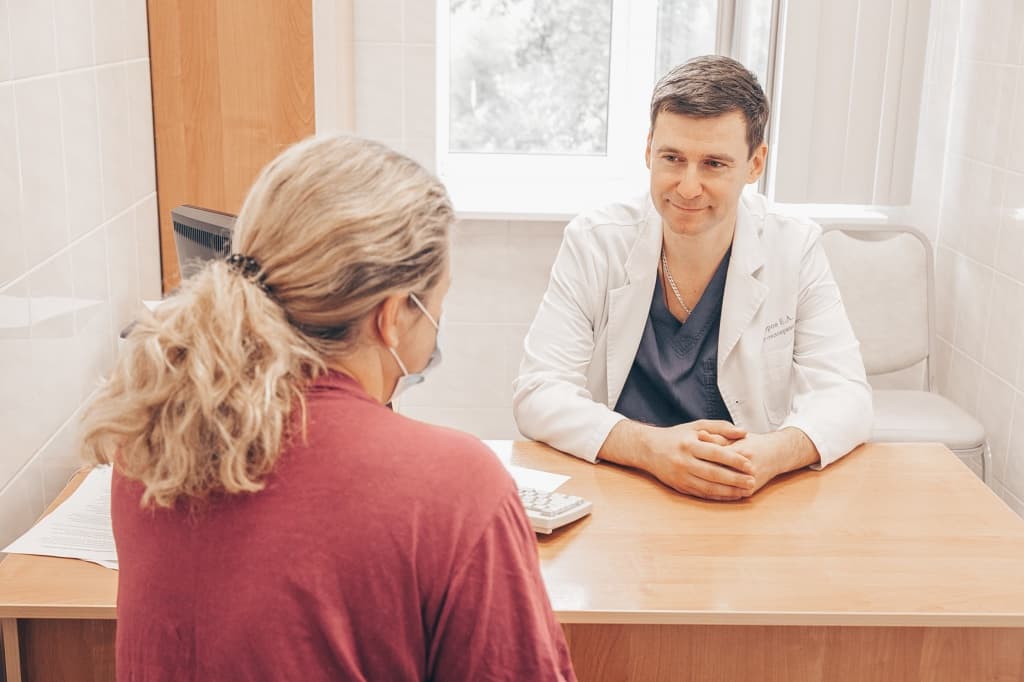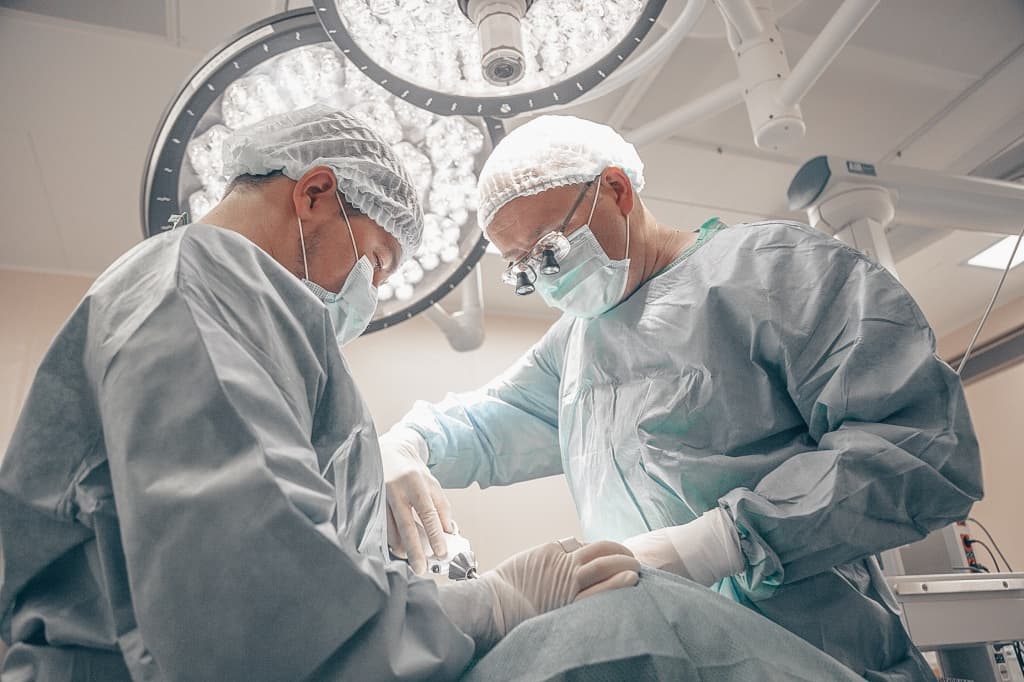Activities areas of the department of endocrinology and endocrine surgery
-
Surgical treatment of diseases of the thyroid and parathyroid glands, adrenal glands.
-
Widespread use of non-surgical treatment of thyroid nodules (interstitial destruction using ethanol, laser radiation, radiofrequency ablation).
-
Conservative treatment of patients with diabetes mellitus, thyroid gland and adrenal gland pathology.
-
Thin needle aspiration biopsy of the thyroid gland (TNAB).

The main achievements of the endocrinology center in recent years
-
Department of Endocrine Surgery is the only one in the North-West region to perform video-assisted and subcutaneous surgeries on the thyroid and parathyroid glands.
-
Before the surgery on the thyroid gland is done, all patients undergo an ultrasound examination with energy Doppler mapping using expert-class equipment. The surgeons of the center have mastered the technique of the thyroid gland ultrasound and are conducting an independent study which allows to plan clearly the amount of surgical interventions and prevent possible complications. If it is necessary, patients undergo an intraoperative ultrasound examination of the thyroid gland using a mobile ultrasound scanner during the surgery.
-
All surgeries on the thyroid and parathyroid glands are performed with the obligatory visualization of the recurrent laryngeal nerves. Intraoperative monitoring of the laryngeal nerve function is widely used (Inomed C2 devices, Germany, Medtronic NIM 3.0, USA).
-
Within a year, the department performs more than 5500 endocrine system surgeries, including more than 2000 surgeries of thyroid cancer, about 200 laparoscopic surgeries of adrenal diseases, more than 800 surgeries of primary and secondary hyperparathyroidism. More than 200 surgeries are performed on children. In terms of the number of surgeries on the thyroid gland, the endocrine service ranks first in Russia and Europe. Every year, patients from more than 80 regions of Russia and several hundred cities come to the clinic.
-
All operations are performed using modern medical technologies that reduce the time of treatment and patient stay in the hospital to 2-3 days.

